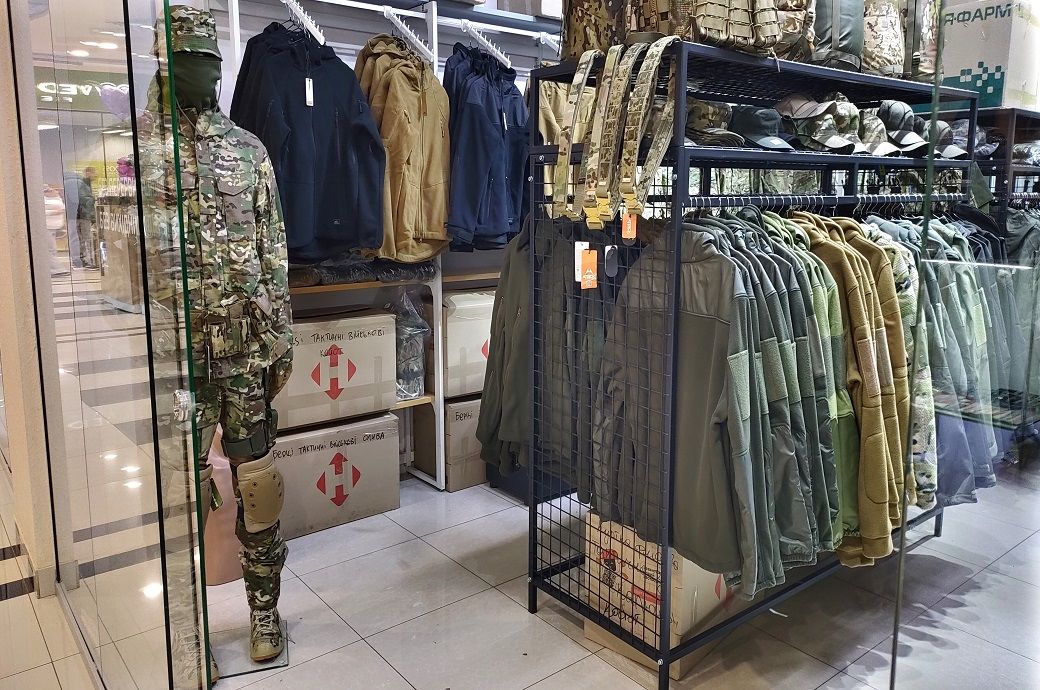
The Berry Amendment has been around in one form or another since 1941 and mandates that all of the military uniforms, boots, body armour and related textile gear purchased by the US Department of Defense (DoD) must be made in the United States—from the raw materials through to final assembly.
It is currently being strengthened with the passing of the Fiscal Year 2026 National Defense Authorization Act (NDAA).
Specific to the NDAA is the closure of a loophole under the Berry Amendment which has allowed the US military to buy textiles from overseas for purchases under $150,000. The new NDAA will eliminate this exemption, ensuring that more military textile purchases are made only by American manufacturers.
NCTO endorsement
Quite understandably, this legislation has been welcomed by the Washington-based US National Council of Textile Organizations (NCTO).
“This is a win for the American textile and apparel industry,” said NCTO president Kim Glas. “It is vital to America’s national security that the US military maintains the ability to source high-quality, innovative textile materials, apparel and personal equipment from a vibrant American textile industrial base. This change could bring millions of dollars in government contracts to US textile producers.”
Reinforcing the EU Green Deal
A similar law governing military purchasing across the European Union states could arguably be even more important, not only in protecting European companies and jobs in the same way, but also in reinforcing the ambitious aims of the EU’s Green Deal and the package of measures it has outlined to green the textile industry.
These have already kicked off this year, with the introduction of a ban on the landfilling and incineration of textile waste and Extended Producer Responsibility (EPR) schemes being introduced by member states to deal with its collection and recycling.
Speaking at June’s Textile Recycling Expo in Brussels, Aurel Ciobanu-Dordea, the European Commission’s director for circular economy, listed various support measures that are currently being considered to help companies and associations better deal with European textile waste.
These specifically include the mandatory public procurement of certain textile categories within the EU, along with the simplification of the bureaucracy around such schemes.
Could this be the starting point for a European Union Berry Amendment?
Background to the Berry Amendment
Enacted in its earliest form in 1941 and made permanent in 1994, the Berry Amendment has been critical to sustaining a US textile and clothing industrial base, ensuring that the apparel and equipment of American service members comes from a secure domestic supply chain. This domestic-source mandate is far stricter than general federal ‘Buy American’ rules, with very few exceptions.
Berry compliance is emphasised down to component level. Every piece of a zipper or button on a uniform, for example, must be of US origin.
The US Defense Logistics Agency (DLA), which supplies virtually all military clothing, asserts that—despite the existing loophole now about to be closed by the NDAA—approximately 98 per cent of uniforms and textile items for US troops are procured from American companies, reflecting the Berry Amendment’s reach.
Major suppliers and manufacturers
The US military uniform market is served by a network of domestic manufacturers many of whom are longstanding apparel companies who have adapted to military specifications and contracts. Some of the current major suppliers and contractors include:
Propper International, one of the largest suppliers of US military uniforms since the 1960s, based in Saint Charles, Missouri. Propper manufactures a wide range of combat uniforms and apparel for multiple service branches. It is known for providing Berry-compliant uniforms with a long track record of durable, regulation-compliant products. Propper’s extensive DoD uniform programme experience and consistent quality have made it a key player in outfitting the Army, Air Force and others.
American Apparel—not related to the fashion brand of the same name. American Apparel’s factories in Alabama have made standard issue uniforms for decades. In 2021, the DoD even invested Defense Production Act funds to upgrade American Apparel’s facilities to ensure it could meet any surge in demand for uniforms. This company remains a crucial source of Berry-compliant combat uniforms and dress clothing for the services.
Bluewater Defense—a key military apparel manufacturer based in Puerto Rico, which is treated as ‘domestic’ under Berry. Bluewater Defense has produced millions of uniforms and uniform components for the US Army, Navy, Marines, and even foreign allied forces under US contracts. For example, it received a series of DLA contracts of over $100 million in value to supply combat utility uniforms, working out of factories in Puerto Rico as well as facilities in North Carolina and Texas. Puerto Rico’s apparel industry has been an important part of the military supply chain, offering cost-effective production while remaining Berry-compliant.
Belleville Boot Company, based in Belleville, Illinois, is the oldest manufacturer of military boots for the US Armed Forces. The company has supplied combat boots to the military since World War I. In April 2024, Belleville was awarded a $10.3 million DLA contract to produce flight deck safety boots for the US Navy.
New York-based Crye Precision is a smaller, specialised supplier known for advanced combat uniforms and gear, especially for special operations forces. Crye Precision invented the MultiCam camouflage pattern and produces modern combat apparel. It has been specifically contracted to make the uniforms of certain elite units.
Point Blank Enterprises and KDH Defense Systems are major US manufacturers of body armour and personal protective equipment (PPE). Point Blank, based in Florida, and KDH Defense, part of Armor Express, based in Eden, North Carolina, have contracts to produce the ballistic vests and armour plate carriers used by the US military.
Other notable suppliers include Massif, for flame-resistant flight suits and combat shirts, and Brookwood and Milliken—both textile mills providing uniform fabrics.
The DLA also frequently awards uniform contracts to small or medium enterprises across the country.
ALCHEMPro News Desk (IL)
Receive daily prices and market insights straight to your inbox. Subscribe to AlchemPro Weekly!